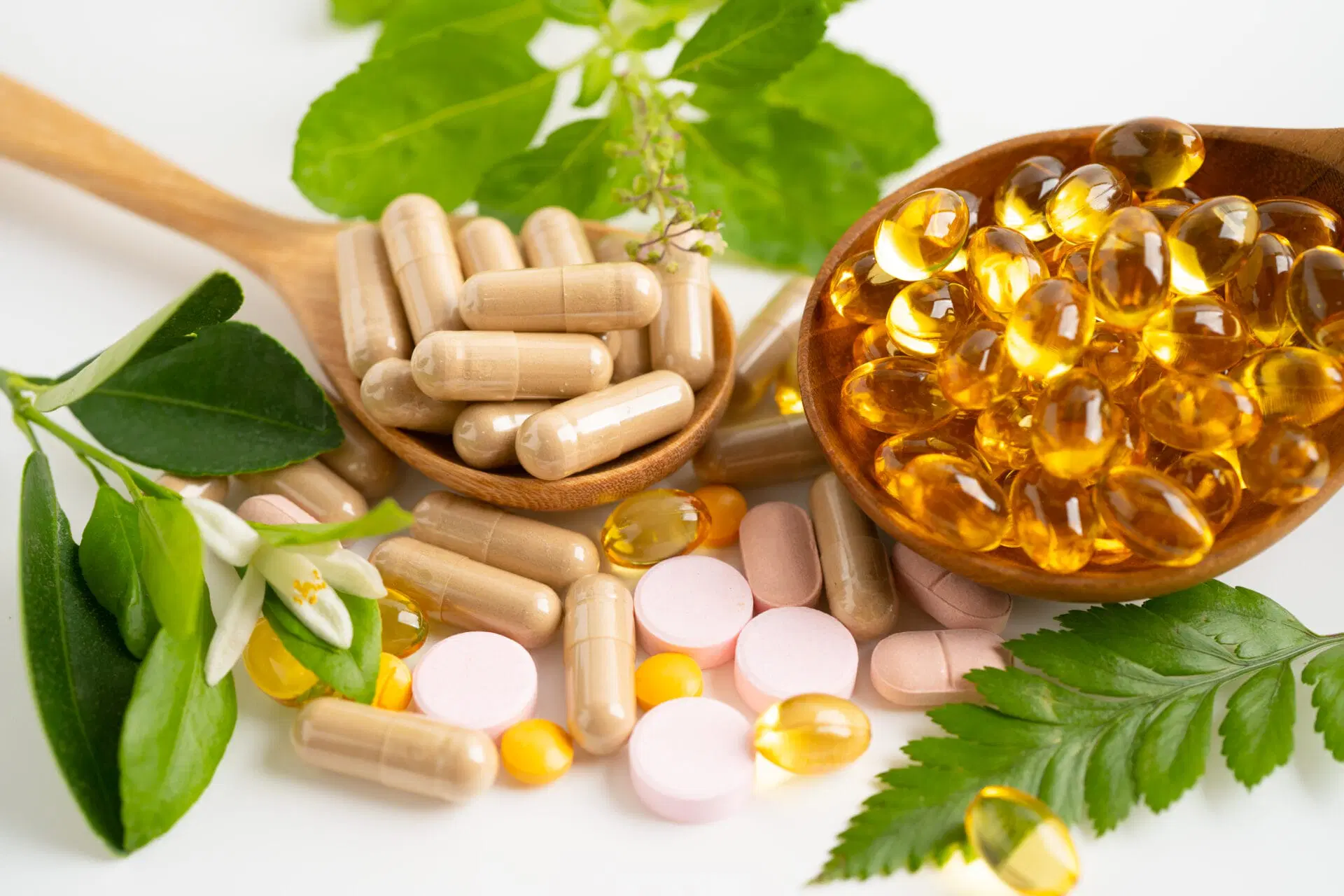The global health and wellness market is booming, and for many entrepreneurs, the dream of launching a unique vitamin or supplement brand has never been more attainable. You have the vision, the brand story, and the audience, but there’s a critical missing piece: how do you turn that brilliant idea into a physical, high-quality product ready for your customers? The answer lies in finding the right vitamin supplement OEM partner.

Private label CHTNature Vitamin Supplement OEM
However, venturing into the world of manufacturing can feel intimidating. It’s a landscape filled with technical jargon, complex regulations, and crucial decisions. This guide is designed to be your definitive roadmap. We will walk you through the entire OEM landscape, demystify the process, and empower you with the knowledge to choose a manufacturing partner that will not only produce your supplement but will help your brand thrive.
What is Vitamin Supplement OEM? (And How It Differs from ODM & Private Label)
Before you start your search, it’s essential to understand the key manufacturing models. Choosing the right one directly impacts your level of control, investment, and speed to market.
Defining OEM (Original Equipment Manufacturer): Your Formula, Our Expertise
OEM is a partnership where you, the brand owner, provide a unique, custom formula, and the manufacturer (the OEM) uses their facilities, equipment, and expertise to produce it exclusively for you. You own the intellectual property (the formula). This model is perfect for brands that want to innovate and create a truly unique product that stands out in a crowded market.
Defining ODM (Original Design Manufacturer): Using a Proven, Ready-Made Formula
In an ODM model, the manufacturer has already developed and tested their own product formulas. You choose a pre-existing formula from their catalog and they produce it for you under your brand name. This is a faster and often less expensive route, ideal for brands that want to launch quickly with a market-proven product. The manufacturer, however, retains ownership of the formula.
Defining Private Label: Putting Your Brand on a Stock Product
Private label is very similar to ODM and the terms are often used interchangeably. It essentially involves selecting a generic, “stock” product that a manufacturer produces for multiple clients and simply applying your brand’s label to the packaging. This is the fastest and most cost-effective option, perfect for testing a market or adding a standard product to your existing line.
Quick-Glance Table: OEM vs. ODM vs. Private Label – Which is Right for You?
| Fonctionnalité | OEM (Original Equipment Manufacturer) | ODM (Original Design Manufacturer) | Private Label |
|---|---|---|---|
| Formula Ownership | You (The Brand) | The Manufacturer | The Manufacturer |
| Customization | Full (Unique Formula) | Limited (Flavor, Packaging) | Minimal (Label Only) |
| Speed to Market | Slower | Faster | Fastest |
| Coût initial | Plus élevé | Moderate | Plus bas |
| Meilleur pour | Innovative brands seeking a unique market position. | Brands wanting a proven product without R&D. | Businesses wanting to quickly add a standard product. |
The Step-by-Step Vitamin OEM Process: A Transparent Journey
Once you’ve decided that the OEM path is right for you, what happens next? A professional OEM partner will guide you through a clear, multi-stage process. We believe in demystifying this journey so you know exactly what to expect.
Stage 1: Consultation & Concept (Your Vision)
This is where it all begins. You’ll meet with the OEM’s team to discuss your product idea, target audience, brand positioning, and desired ingredients. A great partner will act as a consultant, helping you refine your concept and ensure it’s viable for the market.
Stage 2: Formulation & Development (The Science)
This is where your vision takes scientific form. The OEM’s R&D team, which often includes food scientists and nutritionists, will work to create a formula that matches your specifications. They’ll consider factors like ingredient synergy, bioavailability, taste, and texture.

Stage 3: Sourcing & Ingredient Verification (The Quality)
Your product is only as good as its ingredients. A trustworthy OEM has a vetted network of raw material suppliers. They will source high-purity ingredients and provide documentation, such as a Certificate of Analysis (CoA), to verify their identity and quality.
Stage 4: Pilot Batch & Testing (The Proof)
Before committing to a full production run, the manufacturer will produce a small pilot batch. This allows you to test the final product—to taste it, see it, and feel it. This batch undergoes rigorous testing to ensure it meets all specifications for safety and quality.
Stage 5: Full-Scale Production & Quality Control (The Manufacturing)
With your approval of the pilot batch, full-scale production begins. This takes place in a controlled environment, adhering to strict quality standards. Look for manufacturers who operate in a cGMP (Current Good Manufacturing Practice) certified facility, as this is the gold standard for quality assurance in the supplement industry.
Stage 6: Packaging, Labeling & Regulatory Compliance (The Presentation)
While the product is being made, the packaging and labeling are finalized. Your OEM partner should provide guidance to ensure your label is not only attractive but also fully compliant with FDA regulations, including the required supplement facts panel, allergen warnings, and other claims.
Stage 7: Final Testing & Logistics (The Delivery)
The finished, packaged product undergoes one final round of testing to ensure nothing was compromised during production. Once it passes, it is carefully packed and shipped to your designated location, ready for you to launch.

How to Choose the Right Vitamin Supplement OEM Partner: A Founder’s Checklist
Not all manufacturers are created equal. This decision is the foundation of your product’s success. Use this checklist to thoroughly vet your potential partners.
- ✅ Certification and Compliance: This is non-negotiable. Your manufacturer must be registered with the FDA and certified for cGMP. Additional certifications like NSF, ISO, or USDA Organic are strong indicators of a commitment to exceeding quality standards.
- ✅ Expertise and Specialization: Does the manufacturer have experience with the specific dosage form you want? Creating a high-quality gummy requires different expertise and equipment than producing capsules or powders. Ask for examples of similar products they have made.
- ✅ Transparency and Communication: A true partner is transparent about their process, pricing, and potential challenges. They should be easy to communicate with and provide you with a dedicated point of contact. Are they just a factory, or are they a partner invested in your success?
- ✅ Scalability and Flexibility: Can they support your brand as it grows? For startups, finding a partner with a low MOQ (Minimum Order Quantity) is crucial. But you also need to know they have the capacity to scale production as your sales increase.
- ✅ Supply Chain and Ingredient Sourcing: Ask where their raw materials come from. A manufacturer with a robust, transparent, and ethical supply chain is less likely to face disruptions and is more likely to produce a consistently high-quality product.
Why Choose CHTNature as Your Trusted OEM Partner?
At CHTNature, we are more than just manufacturers; we are architects of health. We combine cutting-edge, sustainable manufacturing practices with an unwavering commitment to our partners’ success. Our in-house team of nutritionists and formulation experts works directly with you to develop innovative products that resonate with today’s health-conscious consumers. With cGMP and NSF-certified facilities, we guarantee unparalleled quality, while our flexible MOQ programs are designed specifically to help new and growing brands launch with confidence and scale with ease.
Understanding the Costs: What Goes into a Supplement Manufacturing Quote?
One of the biggest questions for any brand owner is: “How much will this cost?” A transparent quote will break down the expenses, which typically include:
- Ingredient Costs: This is usually the largest portion of the cost and varies dramatically based on the rarity, purity, and dosage of the ingredients in your formula.
- Manufacturing & Labor Costs: This covers the use of the equipment, facility, and the labor involved in producing your product.
- Testing & Certification Fees: The cost for third-party testing and verification to ensure your product is safe and meets label claims.
- Packaging & Labeling Costs: This includes the bottles, caps, seals, labels, and boxes used for your product.
- Minimum Order Quantity (MOQ): The MOQ is the smallest number of units a factory will produce in one run. Generally, a higher volume (larger order) results in a lower cost per unit.
Frequently Asked Questions (FAQ) about Vitamin Supplement OEM
What is a typical Minimum Order Quantity (MOQ)?
MOQs vary widely between manufacturers and product types, ranging from 1,500 units for a simple capsule product to over 5,000 units for more complex items like gummies. Many startup-friendly OEMs are now offering lower MOQs to help new brands enter the market.
How long does the entire process take?
From initial consultation to final delivery, a new OEM project typically takes 12-20 weeks. This timeline depends heavily on the complexity of the formula, ingredient sourcing, and testing requirements.
Can I provide my own ingredients?
Some manufacturers allow this, but they will still need to test and verify the ingredient’s purity and identity to comply with cGMP standards. This may incur additional fees.
What are the key FDA regulations to be aware of?
The FDA regulates dietary supplements as a category of food. Key regulations involve cGMP for manufacturing and strict rules for labeling. Your product cannot claim to diagnose, treat, cure, or prevent any disease. Your OEM partner should be an expert in these regulations.
Do you offer drop shipping services?
Some modern manufacturers and fulfillment partners offer drop shipping, where they hold your inventory and ship orders directly to your customers. This is a valuable service for DTC brands and should be discussed early in the consultation process.
Conclusion: Your Vision, Manufactured with Excellence
Launching a vitamin supplement brand is an exciting venture. While the idea and the marketing are in your hands, the quality, safety, and integrity of the physical product depend entirely on your manufacturing partner. Choosing the right vitamin supplement OEM is not just a supply chain decision; it’s the most critical business partnership you will make. By prioritizing quality, transparency, and expertise, you set the foundation for a trusted brand that customers will love.
Your vision deserves to be brought to life with excellence and care.
Ready to bring your supplement brand to life? Contact our experts today for a free, no-obligation consultation and let’s discuss your vision.

